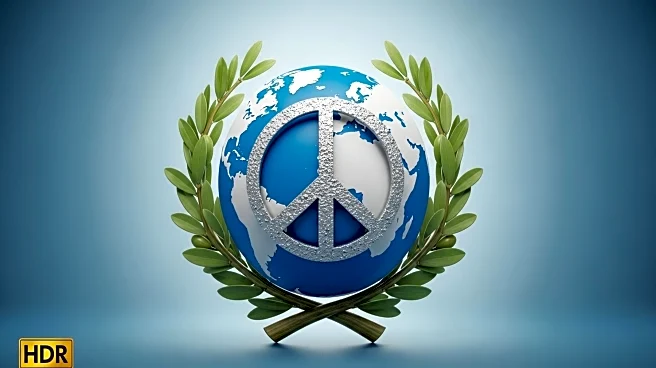What's Happening?
The United Nations Security Council has voted to authorize a 5,550-member international force to address escalating gang violence in Haiti. This decision, made on October 1, 2025, aims to provide expanded powers to the force in order to stabilize the situation in the country. The move comes in response to increasing concerns over the safety and security of Haitian citizens, as gang-related activities have intensified, leading to widespread violence and instability. The international community has been called upon to support this initiative, with the goal of restoring peace and order in Haiti.
Why It's Important?
The authorization of an international force to combat gang violence in Haiti is significant for several reasons. Firstly, it highlights the international community's recognition of the severity of the situation in Haiti and the need for immediate intervention. The deployment of a large force with expanded powers is expected to help curb the violence and restore stability, which is crucial for the safety of Haitian citizens and the overall security of the region. Additionally, this move may set a precedent for future international interventions in similar situations, emphasizing the role of global cooperation in addressing security challenges.
What's Next?
Following the authorization, the next steps involve the deployment and coordination of the international force in Haiti. Key stakeholders, including member states of the United Nations, will need to collaborate to ensure the effective implementation of the mission. The focus will be on strategic planning and resource allocation to maximize the impact of the intervention. Monitoring and evaluation mechanisms will be essential to assess the progress and adapt strategies as needed. The success of this mission could influence future international peacekeeping efforts and shape policies regarding intervention in conflict zones.
Beyond the Headlines
The decision to authorize an international force in Haiti raises important ethical and legal considerations. The sovereignty of Haiti and the implications of foreign intervention must be carefully balanced with the need to protect citizens and restore order. Long-term solutions will require addressing the root causes of gang violence, including poverty, lack of education, and political instability. The international community's involvement may also lead to increased scrutiny and pressure on the Haitian government to implement reforms and improve governance.








